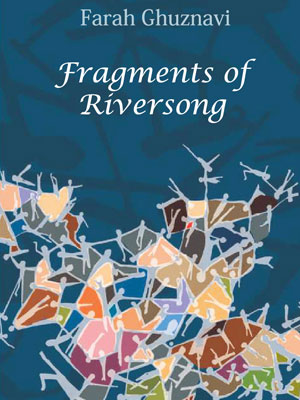 Short stories fascinate me. The art of weaving a tale in limited words and allowing readers to gain understanding of a topic or theme in a short amount of time is a wonderfully creative thing. In Fragments of Riversong, a short story collection by Bangladeshi author Farah Ghuznavi, I appreciated this very aspect of her craft.
Short stories fascinate me. The art of weaving a tale in limited words and allowing readers to gain understanding of a topic or theme in a short amount of time is a wonderfully creative thing. In Fragments of Riversong, a short story collection by Bangladeshi author Farah Ghuznavi, I appreciated this very aspect of her craft.
Fragments of Riversong contains 12 short stories; some longer fiction, others very short flash fiction. Despite the variations in length they have a few recurring themes. For me, the two most relevant recurring themes were studies in contrast and the condition of women.
The collection highlights a variety of contrasts that make up contemporary Bangladeshi life. In the story “Waiting” there is a not-so-subtle contrast between the rich and poor, while in “Old Delhi, New Tricks” the contrast is between tourists and citizens, those who are from the “desh” and those who pretend to be. Some contrasts are not really contrasts at all, such as in the futuristic story “The Assessment” set in a 25th-century subcontinent where women are supposed to have it all, yet their condition is still the same.
“The Mosquito Net Confessions” is probably the richest and most thought provoking story of many contrasts — between rural and city life, between Bengali and African women, even between the Bengali women themselves. The story revolves around a group of women who visit a village as part of their job in the financial sector and find out much about themselves while they attempt to learn about the villagers.
Diya is a Bengali who has studied abroad, while Shahana is a Bangladeshi American who fits in nowhere because she has no cultural cues to fall back on. The typical portrait of village life aside, the best parts of the story for me were the conversations the two women had under the mosquito net at night, ranging from the market-like atmosphere at Bangladeshi weddings, to the much deeper realization that Bengali immigrants in the U.S. and U.K. have frozen images of their home country which they foist onto their children. In itself a common-enough observation, it packs a punch when explained within the context of a story of American or British women coming “home” with no idea of where home actually is.
The second theme of the female condition is always front and center in the collection, sometimes bright as a neon sign and sometimes subtle and fine. As a Pakistani American, this condition reverberated with me even though these particular stories are set in Bangladesh. I saw in Ghuznavi’s fictional women many of the same stories about which I write and know.
From the crazy, harmful mix of female relationships in “Big Mother,” to the hilariously real picture of a courageous and fun loving grandmother in “The Guava Tree Rebellion,” to the unnamed wife who tries to escape her husband’s oppression by slowly poisoning him in “Waiting for the Storm,” women show bravery in the face of oppression, hope in the face of bad news, and dedication in the face of insurmountable circumstances. There is no preaching here, no descriptions of lessons learned, but vignettes of women who are able to free themselves of traditional oppression when times demand it.
Overall, Fragments of Riversong is a solid collection of tales of contemporary Bengali life with all its beauty and ugliness.
* * *
Saadia Faruqi is the author of Brick Walls: Tales of Hope & Courage from Pakistan. Visit her website or follow her on Twitter @saadiafaruqi.












